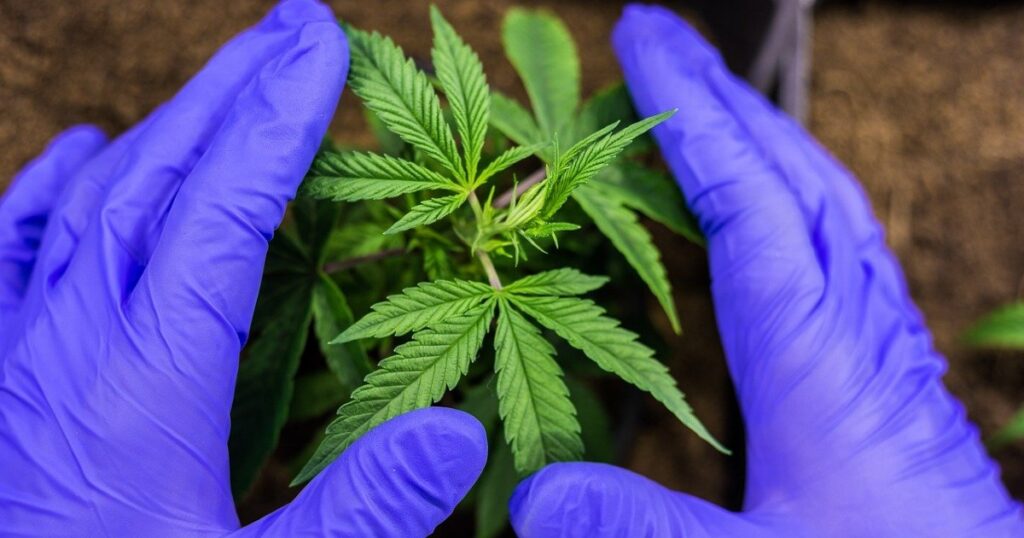By David Williams
In recent years, conversations about marijuana have changed dramatically. Although once considered a recreational drug, it gained traction for medical benefits, the marijuana classification remains a Schedule III drug, which then limits access to patients who can get serious benefits. Rescheduling is not just common sense, but new polls show that Americans may be ready for reclassification.
There is overwhelming support in rescheduling marijuana. According to a recent poll conducted by Fabrizio, Lee and Associates, released on March 6, 2025, “Over 70% of all voters and 67% of GOP voters support rescheduling cannabis as a Schedule III drug, while less than a quarter of each is against it. 65%-24%.”
The Controlled Substances Act (CSA) divides drugs into five schedules based on abuse, healthcare utility and safety potential. Because marijuana is currently classified, Schedule I drugs are considered the most dangerous and have no accepted medical use. Schedule II contains substances like opioids. Opioids are highly regulated, but recognize medical benefits. Rescheduling marijuana to Schedule III will recognize medical benefits and enable future research and medical advances.
In August 2023, the Department of Health and Human Services (HHS) recommended the Drug Enforcement Agency (DEA) to move marijuana from Schedule I to Schedule III based on the scientific and medical evaluation of the HHS. In May 2024, the DEA proposed a rule that changes would be made if completed. However, despite overwhelming support from Americans to reschedule this life-saving drug, marijuana remains categorized based on Schedule I.
Today, patients and their caregivers need to navigate alternative medicine themselves, as drugs are still illegal in the federal government. Rescheduling marijuana can change it and change the lives of patients who use it.
<

Sarah O’Hanlon and her son Owen were diagnosed with convulsions in her infant at five months old, and had undergone lifelong seizures and had to make extraordinary efforts to seek treatment. Owen was born in 2005 and when she ran out of all her treatment options in her Virginia home town, Sarah moved to Colorado, where medical marijuana was legal, in the hopes of finding relief for her son’s attacks. After moving around the country to help her son get his epilepsy cured, Sarah had to study and learn about cannabis herself. In 2015, there was less information about marijuana, and the status of the drug as a schedule means there is still less information about administration and other topics. “It was very wild and felt like a wild West,” Sarah said. Owen never achieved complete seizure freedom, but medical marijuana made his life better. He had an increased recovery in seizure reductions and a seizure. He bouncing faster, getting a better sleep, leading to a better life.
Not all patients have supermom advocates like Sarah, and not have to. Rescheduling marijuana to Schedule III enables future medical research and development, and provides better person treatment for patients, like Owen. Current Schedule I classification makes it more difficult for drug developers and researchers to obtain appropriate licenses and funding, limiting options and hindering innovation.
Expanding the industry will increase job opportunities and tax revenues for the state and federal governments. The sector supported approximately 440,445 jobs in 2023, with cannabis sales in the United States exceeding $31 billion in 2024. Rescheduling of this drug also grants licensed cannabis businesses federal tax benefits under Section 280E of the Internal Revenue Code. Currently, the cannabis business cannot deduct standard expenses such as rent, pay, or marketing, as cannabis is Schedule I.
Rescheduling marijuana to Schedule III enables industry growth and increases innovation and research for healthcare. The Trump administration has the opportunity to make historic changes by rescheduling drugs and acknowledging medical benefits.
David Williams is the president of the Taxpayer Protection Union.


